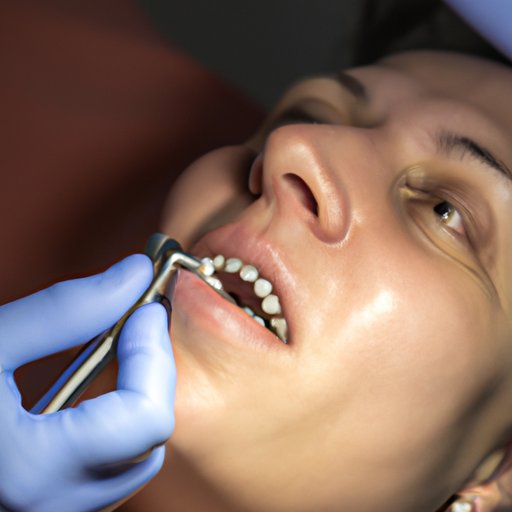How to Stop Grinding Your Teeth: A Comprehensive Guide
Do you often wake up with a sore jaw or dull headache? Have you noticed that you clench or grind your teeth during the day or while sleeping? This habit is known as bruxism, and it affects millions of people worldwide. Teeth grinding can damage your teeth, cause jaw pain and headaches, disrupt sleep, and affect your overall quality of life. Fortunately, there are several strategies that can help you stop grinding your teeth and alleviate the associated symptoms.
Understanding the Causes of Teeth Grinding
To stop grinding your teeth, it’s essential to understand what causes bruxism. Stress, anxiety, poor sleep, and medication side effects are among the most common factors that contribute to teeth grinding. When you’re stressed or anxious, your muscles tense up, including those in your jaw. Poor sleep can also cause muscle tension and lead to bruxism. Certain medications, such as antidepressants, can cause bruxism as a side effect. Understanding the root cause of your teeth grinding can help you develop effective strategies to overcome it.
Relaxation Techniques
One effective strategy for stopping teeth grinding is to practice relaxation techniques. Yoga, meditation, and deep breathing can help reduce stress and promote relaxation of your jaw muscles. If you’re new to these practices, start with a few minutes each day and gradually increase the duration. Find a quiet and comfortable place to sit or lie down, close your eyes, and focus on your breath. As you inhale and exhale, visualize yourself releasing tension in your muscles, including those in your face and jaw.
Dental Strategies
If your teeth grinding is severe, your dentist may recommend a mouth guard or splint. These devices can help protect your teeth, reduce grinding, and alleviate associated symptoms. A mouth guard is a removable device that fits over your upper or lower teeth. It creates a barrier between your teeth, preventing them from grinding together. A splint is a more substantial device that is customized to fit your mouth and correct your bite. Your dentist can help you choose the right device for your needs and provide instructions on how to use and care for it.
Changing Habits
Simple changes to your lifestyle can also make a big difference in reducing teeth grinding. For instance, avoiding caffeine and alcohol can help ease anxiety and promote better sleep. Taking breaks from chewing gum or hard foods can also reduce wear and tear on your teeth and jaw muscles. Practicing good sleep hygiene, such as keeping a consistent bedtime and limit screen time before bed, can help you get better-quality sleep and reduce stress levels.
Massaging the Jaw
Massaging your jaw and facial muscles can also help relieve tension and reduce teeth grinding. Using warm compresses to relax the muscles can be beneficial. You can also incorporate stretching exercises to increase flexibility and reduce muscle tension. Massage and stretching can be done at any time of the day, especially before bed, to help you relax and sleep better.
Exercise
Maintaining an active lifestyle and regular exercise can release endorphins that boost mood, alleviate stress, and reduce anxiety, which are common triggers for bruxism. Exercises that can help release tension in the body include yoga, Pilates, and cardiovascular training like running.
Medication and Surgery
Medication and surgery are last-resort options for severe teeth grinding. Your dentist or doctor can prescribe muscle relaxants or antidepressants to help manage the symptoms in extreme cases. In rare cases, surgery may be required to correct a bite misalignment or other dental problems that cause teeth grinding.
Conclusion
Teeth grinding is a common issue that affects many people and can lead to various health complications. This guide provides several strategies that can help you stop grinding your teeth, including relaxation techniques, dental strategies, habit changes, jaw massage, exercise, and medication or surgery. Always consult with your dentist or doctor if your teeth grinding is severe or disruptive. Implementing these tips and strategies can help reduce your bruxism symptoms and improve your quality of life.
